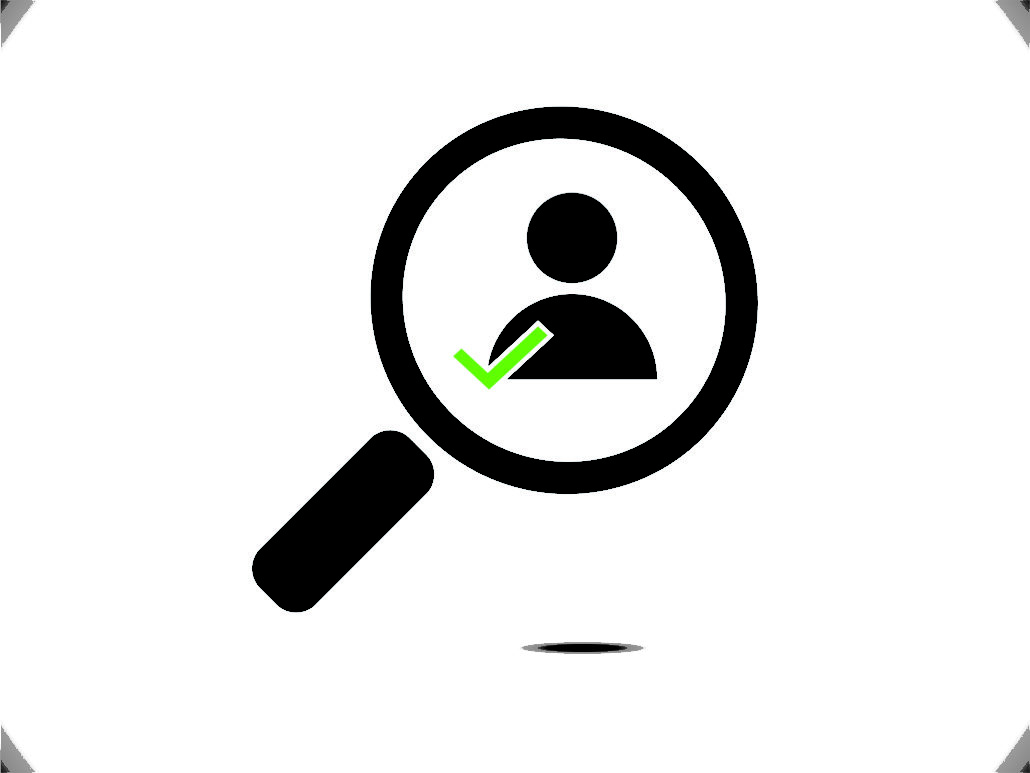Remote work has been changing the game, giving both employers and employees loads of flexibility and new opportunities. But as more folks go remote, it’s super important to make sure we’re keeping an eye on employee background checks. Let’s talk about why these checks are crucial for remote teams, what makes them a bit different, and how companies can nail the screening process to keep their remote workforce solid and trustworthy.

The Evolving Landscape of Remote Work
Increased Flexibility
Remote work has reshaped how we think about our jobs, offering the flexibility to work from just about anywhere. This flexibility has been a game changer for achieving a better work-life balance and has made it possible for employers to attract a diverse range of talents who might not have been reachable otherwise.
Global Talent Acquisition
With the barriers of geography knocked down, companies are no longer limited to local talent pools. This opens up possibilities to hire skilled professionals from all corners of the globe, ensuring that the best talent can be a part of the team, no matter where they are located.
Limited Physical Oversight
One of the trickiest parts of remote work is the lack of traditional physical oversight. Without the ability to pop into someone’s office, it’s tougher to manage and monitor remote employees. This shift calls for a more thorough and robust approach to background checks and ongoing monitoring to maintain high standards of productivity and conduct.
Security Concerns
Remote work also introduces new layers of security concerns, particularly with the protection of sensitive data and intellectual property. When employees are spread out, securing this information becomes more complex but even more crucial. This complexity makes comprehensive background checks for remote workers vital, as they help ensure that those who are hired are trustworthy and capable of handling sensitive information responsibly.
The Importance of Employee Background Checks for Remote Workers
Identifying Potential Risks
When employees work remotely, they often handle sensitive and confidential information away from the more secure confines of an office setting. This situation makes it critical to thoroughly vet potential hires. Background checks can uncover any risks in a candidate’s background and work history, such as past behaviors or decisions that could pose threats to the company’s integrity and security.
Ensuring Trustworthiness
Trust is the cornerstone of any successful remote working arrangement. Conducting detailed background checks is key to ensuring that remote workers are reliable and honest. This step is crucial in protecting the organization from potential misconduct or security breaches, which could have far-reaching consequences for its reputation and operations.
Adherence to Company Values
Background checks are vital in making sure that remote workers embody the company’s core values and ethics. Even without the day-to-day presence in a traditional office, it’s important that employees uphold the company’s standards and policies. This alignment helps maintain a unified corporate culture and supports effective remote work dynamics.
Regulatory Compliance
For many industries, adhering to specific regulations and legal standards isn’t just important—it’s mandated. Background checks are an essential tool for ensuring that remote workers meet all regulatory requirements. This thorough vetting process helps organizations avoid legal pitfalls and maintain compliance with industry standards, which can vary widely from one sector to another.
Components of Employee Background Checks for Remote Workers
Criminal Background Checks
National and International Checks
To ensure the suitability of remote workers, it’s important to conduct comprehensive criminal background checks that span national and, when necessary, international databases. This thorough scrutiny helps uncover any criminal history that could influence an individual’s ability to perform in a remote setting securely and effectively.
Compliance with Local Laws
Criminal background checks must adhere to local laws and regulations, which can vary significantly from one jurisdiction to another. Ensuring compliance not only protects the organization legally but also respects the privacy and rights of the candidate.
Identity Verification
Authentication Processes
Implementing robust identity verification processes is crucial for confirming the identities of remote workers. These measures help prevent fraudulent activities and misrepresentation, ensuring that only legitimate and verified individuals join the team.
Document Verification
Verifying critical documents, such as government-issued IDs or passports, is essential to confirm the authenticity of information provided by remote candidates. This step is vital in preventing identity theft and ensuring that all personnel records are accurate.
Employment Verification
Work History
Verifying a remote worker’s employment history is key to validating the information on their resume. This includes confirming previous job titles, durations of employment, and the nature of their roles, which helps assess their experience and skills relevant to the new position.
Professional References
Reaching out to professional references provides additional insights into a candidate’s past performance and reliability. This feedback is invaluable in understanding how they might integrate and contribute to the remote team.
Education Verification
Confirming Academic Credentials
It’s important to verify the academic credentials of potential remote workers to ensure they possess the necessary educational qualifications for their roles. This step confirms the validity of degrees and other certifications claimed by the applicant.
Degree Mills and Diploma Mills
Guarding against fraudulent educational credentials is crucial. This involves checking for the accreditation of the institutions listed on resumes and ensuring that the degrees obtained are from legitimate and recognized educational bodies. This process helps maintain high standards of integrity within the company’s remote workforce.

Unique Considerations for Remote Worker Background Checks
Cybersecurity Training
Given that remote workers often manage sensitive digital data, assessing their cybersecurity knowledge is key. Providing comprehensive training ensures they are equipped to protect this information and navigate the complexities of digital security effectively.
Vulnerability Assessments
Conducting vulnerability assessments is crucial to identify potential weak points in a remote worker’s digital setup. This step helps mitigate risks and fortify the remote environment against potential cyber threats, safeguarding both the employee and the company.
Social Media Presence
Analyzing a candidate’s social media presence can provide valuable insights into their online behavior and professionalism. This analysis helps determine how well they might align with the company’s values and whether their digital persona upholds the company’s image and policies.
Online Reputation
Assessing an individual’s online reputation is essential to identify any potential red flags that could affect their suitability for remote work. This includes reviewing public interactions, posts, and other online activities that might reflect on their professional conduct.
Virtual Interviewing
Evaluating a remote candidate’s communication skills through virtual interviews is crucial for understanding how effectively they can collaborate and express themselves in a remote setting. This process ensures that they can interact productively with teams and manage remote communications efficiently.
Written Communication
Since remote work often depends heavily on written communications, assessing skills in writing emails, reports, and other documents is essential. Evaluating this aspect ensures the remote worker can convey information clearly and professionally, maintaining effective communication across the company.
Legal and Ethical Considerations for Remote Worker Background Checks
Compliance with Privacy Laws
It’s crucial that employee background checks for remote workers comply with all applicable data privacy laws. Adhering to these regulations protects the rights of individuals and ensures that the organization remains on the right side of the law.
Consent
Obtaining informed consent is a fundamental step before initiating any background checks. It’s important to clearly communicate to potential remote workers the purpose, scope, and what they can expect from the process. This transparency helps maintain trust and respect for their privacy.
Fair Hiring Practices
Implementing fair hiring practices is essential to prevent any form of discrimination during the recruitment process. Ensuring that background checks are strictly job-related and consistent across all candidates helps maintain fairness and objectivity.
Adhering to equal opportunity employment principles is vital for fostering an inclusive and diverse remote workforce. These practices promote equality and help prevent bias, ensuring all candidates have a fair chance based on their qualifications and abilities.
Implementing Effective Employee Background Checks for Remote Workers
Written Guidelines
Developing clear, written guidelines and policies for conducting background checks on remote workers is crucial. These documents should outline each step of the process, ensuring transparency and consistency. This clarity helps everyone involved understand the expectations and procedures, maintaining a high standard of practice.
Employee Handbook
Incorporating these background check policies into the employee handbook ensures that all workers, whether remote or in-office, have clear guidance on how these processes are handled. This inclusion also helps standardize practices across the company, providing a reference point for both current and new employees.
Reliable Screening Agencies
Working with reputable screening agencies that specialize in remote worker background checks can enhance the accuracy and reliability of the screenings. These agencies bring expertise and robust resources to the table, ensuring high-quality checks are conducted.
Compliance Expertise
Leveraging the expertise of professional screening services also helps navigate the complex landscape of compliance with local, national, and international laws. These experts ensure that your background checks meet all legal requirements, reducing the risk of non-compliance and associated penalties.
Periodic Reassessments
Implementing periodic reassessments of remote workers’ backgrounds is important to manage any changes or new risks that may emerge during their tenure. Regular checks help maintain a secure and compliant workforce, adapting to new information as it becomes available.
Continuous Improvement
Continually refining and improving the background check processes based on feedback, emerging industry standards, and legal developments ensures that your practices remain effective and relevant. This proactive approach helps anticipate changes in the landscape of remote work and background checks, maintaining the integrity and security of your remote workforce.

Remote work is totally changing the game for how we all do business, and that means we need to switch up how we hire, too. Running background checks on remote workers isn’t just a box to tick—it’s key to keeping things secure, making sure everyone’s playing by the rules, and building a team you can really trust. By really getting into the details with thorough screening, you can handle the twists and turns of remote work, protect your assets, and put together a remote team that really fits with what your company’s all about.
Need a hand with that? ASG Investigations has got your back. We’re pros at background checks for remote workers, helping you dot the i’s and cross the t’s so you can focus on growing your team and your business.


